Latest F1 news in brief – Thursday
-
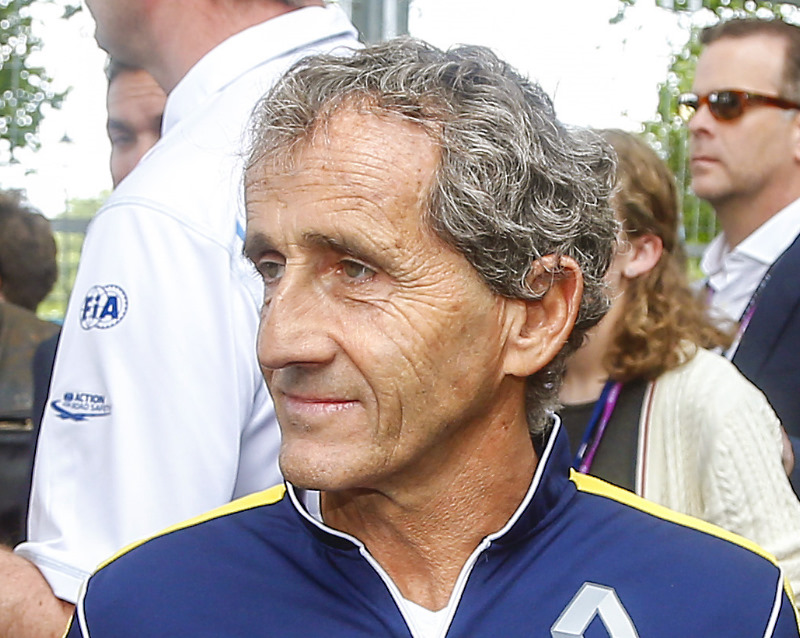
Alain Prost expects to get beat Customers may beat Renault in 2018 – Prost
- Honda Formula 1 boss Yusuke Hasegawa sacked
- Engine penalty system adjusted for 2018
- Brazil GP issued with security recommendations
- 2018 F1 calendar finalized
- Raikkonen: 'A few years' to judge Liberty
- Todt 'very surprised' by negativity over halo
- Kubica: Rosberg arrival a 'powerful upgrade'
- Ferrari signs Brazilian karter to program
Customers may beat Renault in 2018 – Prost
(GMM) Alain Prost has admitted Renault may struggle to beat its engine customers in 2018.
Next year, the French carmaker will continue to run its own works team while supplying identical power units to both Red Bull and McLaren.
F1 legend Prost, a Renault advisor, says it will not be easy for Renault to beat them.
But he told Auto Motor und Sport: "For me, the pressure is positive, even if it is difficult.
"The factory team will race against two well-established teams, where the entire organization that Renault is still setting up already exists.
"And both of those teams also have top drivers — maybe even the best. On paper we cannot beat Red Bull and McLaren," quadruple world champion Prost said.
The great Frenchman admits Renault was disappointed to miss its target of fifth in the constructors' championship in 2017, "But we will be better next year".
"And the comparison with the customer teams will help us to gain experience in order to get closer to the top teams," Prost continued.
"We will be here for a long time so it's important that we make progress every year. In the end, if we want to win, we will have to beat everyone."
Honda Formula 1 boss Yusuke Hasegawa sacked
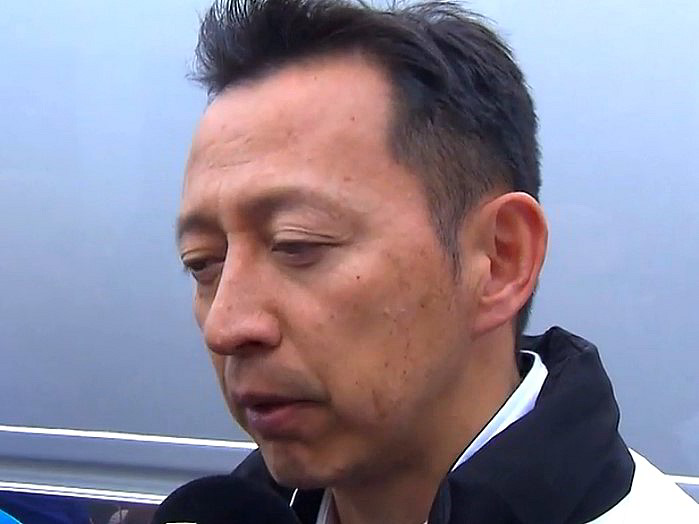 |
| Yusuke Hasegawa sacked |
Yusuke Hasegawa will leave his role as head of Honda's Formula 1 project at the end of 2017 as part of a management structure overhaul.
Hasegawa has faced growing pressure over the course of this season as Honda struggled with both power and reliability, and ultimately ended its relationship with McLaren after three seasons.
Ahead of the start of Honda's new partnership with Toro Rosso, the Japanese manufacturer has announced changes to its organizational structure in a bid to turn around its fortunes.
In his role as head of F1 project, Hasegawa was responsible for both engine development in Sakura and the race operation.
That role has been removed, with Honda splitting the responsibilities to create two new positions.
Toyoharu Tanabe has been named F1 technical director and will focus on the racing and testing operation at the circuit.
Autosport has learned Yasuaki Asaki will take the role of operating officer at Sakura in charge of F1 engine development.
Engine penalty system adjusted for 2018
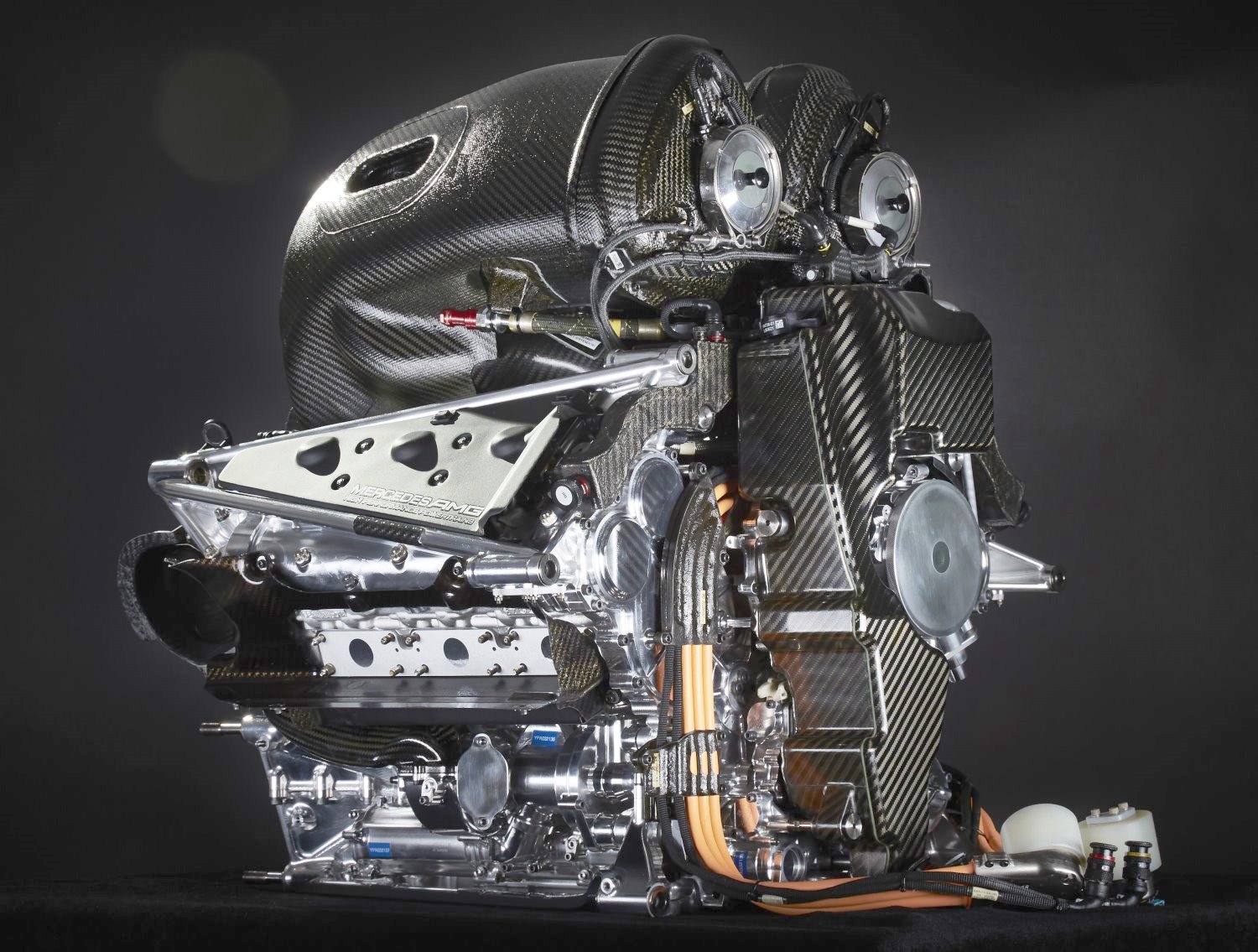 |
| Mercedes F1 engine |
Formula 1's engine penalty system has been adjusted for the 2018 season, in a bid to simplify the process for spectators.
Under Formula 1 regulations, drivers receive either five- or 10-place grid penalties when they take on new engine components, the allocation of which has been reduced for 2018.
Drivers will be permitted three Internal Combustion Engines, MGU-Hs and Turbochargers, and two Energy Stores, MGU-Ks and Control Electronics for the 21-race schedule.
The grid penalty system received criticism at points in 2017 when several drivers were issued with an array of sanctions which could not be served, leading to confusion over the composition of the grid.
At the Italian Grand Prix, nine drivers received penalties, seven of which were engine related, with four of them larger than the size of the grid itself.
Under revised regulations, as soon as a driver sustains a 15-place drop, equivalent to taking on two new components, they will be sent to the back of the grid.
Should more than one driver receive such a penalty, they "will be arranged at the back of the grid in the order in which the offences were committed".
Several other tweaks have been made to the Sporting and Technical Regulations for 2018, as outlined below:
– Regulations relating to procedures for starting or resuming a race behind the Safety Car
– Changing the event timetable to increase flexibility
– Ensuring that testing of previous cars may only take place on tracks currently holding an FIA Grade 1 or 1T license
– Provision for demonstration events in previous cars which does not constitute testing. No such demonstrations may exceed 50km in length and only tires manufactured specifically for this purpose by the appointed supplier may be used
– Changes to ensure that oil cannot be used as fuel
– Introduction of a detailed specification for oil
– A minimum weight and volume for energy storage (batteries)
– Changes to position of cameras and wing mirrors to accommodate the Halo
Brazil GP issued with security recommendations
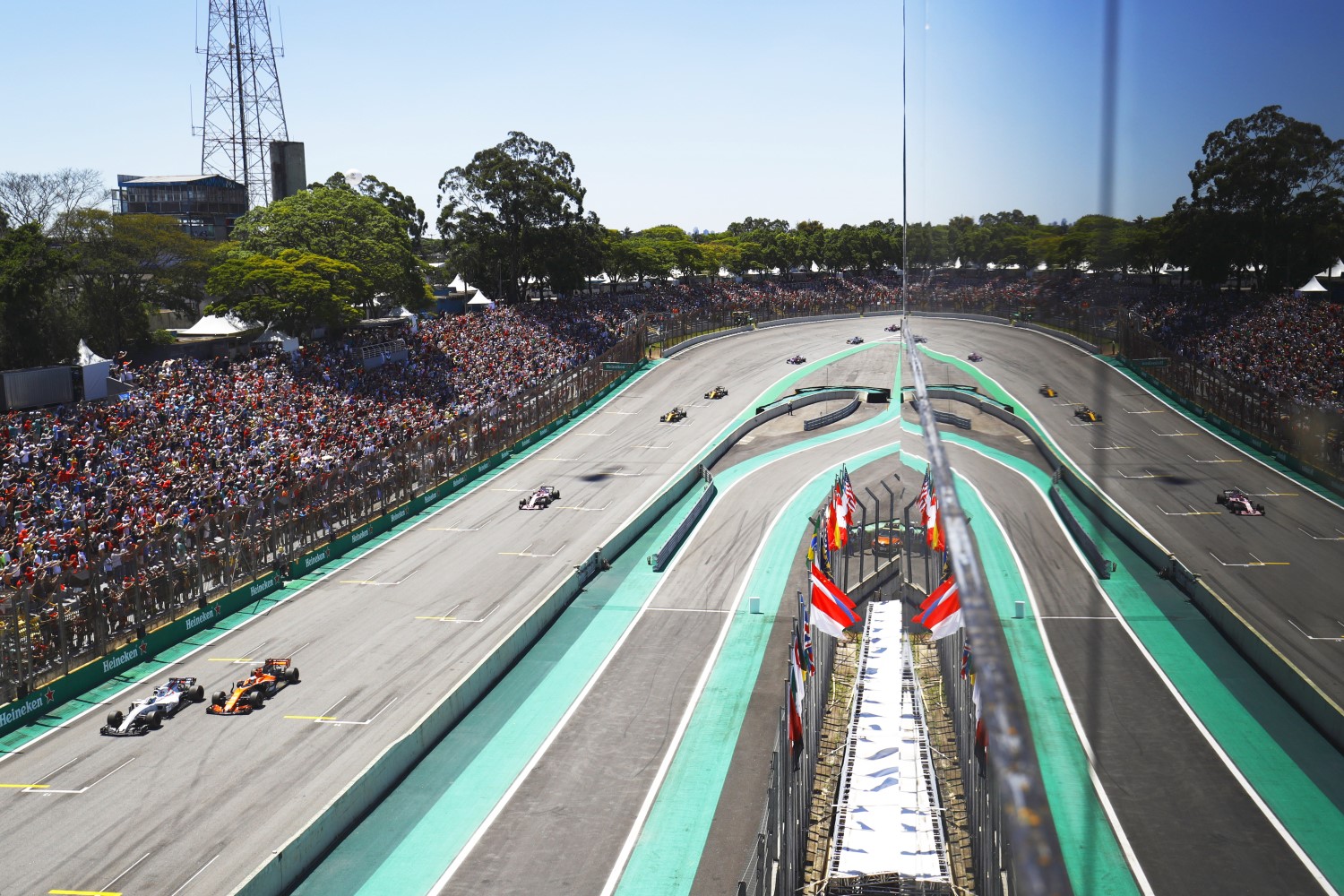 |
| Interlagos |
Brazilian Grand Prix organisers have been issued with suggested revised security procedures after an array of incidents at this year's event.
Safety has been an underlying concern for several years but a sequence of attacks took place on Formula 1 personnel at Interlagos, when paddock members were returning to their hotels.
The most serious took place on the Mercedes team, with one minibus held up at gunpoint, and several crew members robbed of personal belongings.
Pirelli and McLaren consequently abandoned their planned post-race two-day tire test.
The FIA requested that a report was compiled and its findings were discussed during a meeting of the World Motor Sport Council on Wednesday.
"The World Council was presented with the report on the security incidents that occurred at this year's Brazilian Grand Prix," read a statement.
"Following the report, the CRH [Commercial Rights Holder] recommended that the promoter, who is responsible for the security of the event, retains an independent security expert to evaluate and advise on security plans."
It also advised that it should "implement a police reporting hub at the circuit and improves overall communication between the promoter security, police and F1 stakeholders.
"The World Council strongly urged the promoter to implement these recommendations and improve the situation ahead of next year's event.
"The FIA will offer to participate in discussions with the local authorities and closely monitor the situation."
Brazil's place on the 2018 calendar was ratified during the WMSC's meeting, with no mention made of any consequences for the event if its proposal is not acted upon.
2018 F1 calendar finalized
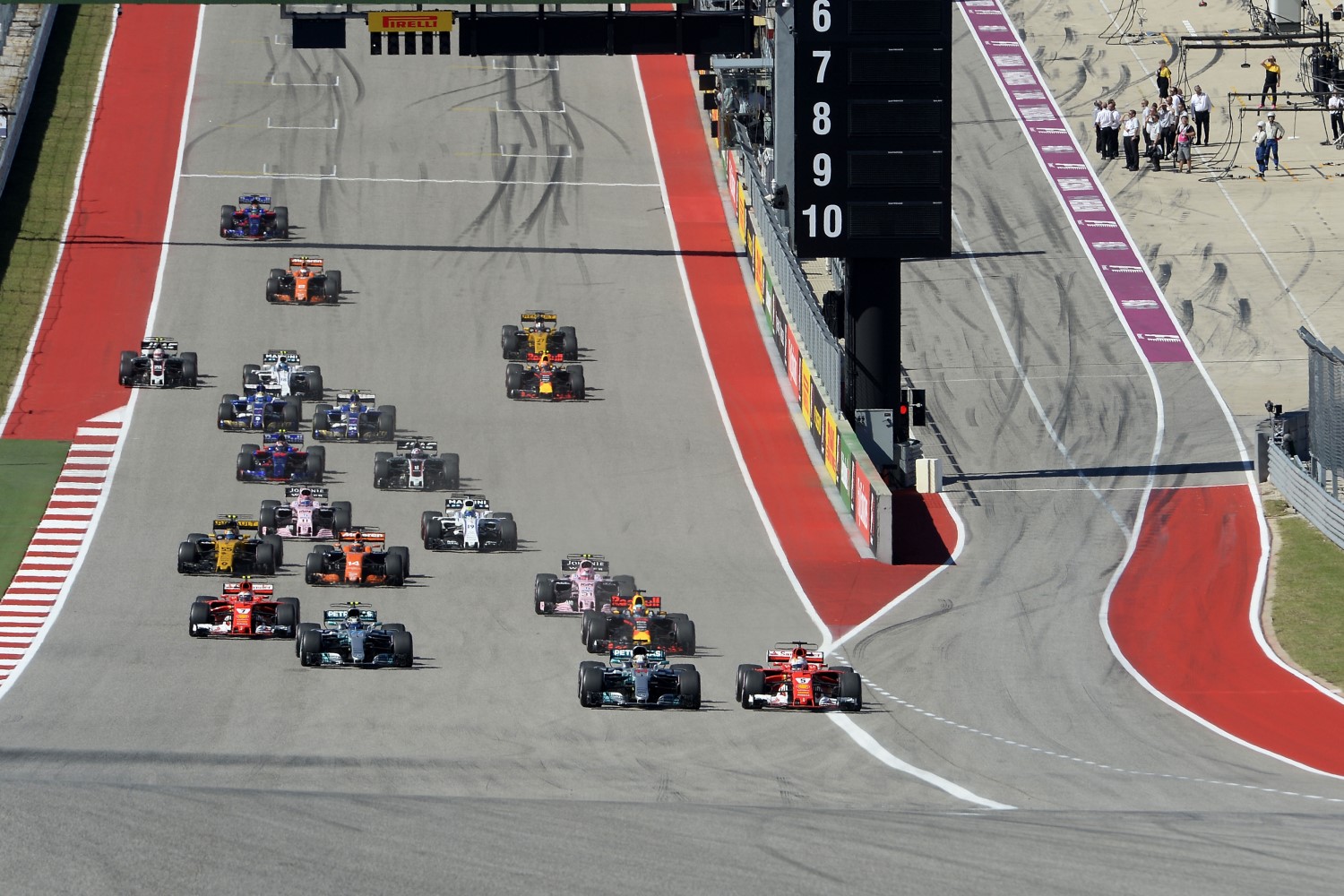 |
| The USGP remains tentative |
The 21-race 2018 Formula 1 calendar has been finalized, following Wednesday's meeting of the FIA's World Motor Sport Council in Paris.
The initial roster was unveiled in June, but one tweak has been made on the final version, with China and Bahrain swapping places, ensuring that the sport will visit Sakhir first, followed by Shanghai.
The change was confirmed by Formula 1 CEO Chase Carey in September, following the renewal of China's deal, but has now been officially ratified following the gathering of the WMSC on Wednesday.
The season will again open in Australia in late March and conclude in Abu Dhabi on the final weekend in November.
Formula 1 returns to France, the first event of a triple-header, and Germany, while Malaysia has been dropped.
October's Austin round remains subject to the approval of the local sanctioning body.
Confirmed 2018 F1 calendar:
25 March – Australia (Melbourne)
8 April – Bahrain (Sakhir)
15 April – China (Shanghai)
29 April – Azerbaijan (Baku)
13 May – Spain (Barcelona)
27 May – Monaco (Monte Carlo)
10 June – Canada (Montreal)
24 June – France (Le Castellet)
1 July – Austria (Spielberg)
8 July – Britain (Silverstone)
22 July – Germany (Hockenheim)
29 July – Hungary (Budapest)
26 August – Belgium (Spa-Francorchamps)
2 September – Italy (Monza)
16 September – Singapore (Marina Bay)
30 September – Russia (Sochi)
7 October – Japan (Suzuka)
21 October – USA (Austin)*
28 October – Mexico (Mexico City)
11 November – Brazil (Sao Paulo)
25 November – Abu Dhabi (Yas Marina)
*Subject to ASN approval
Raikkonen: 'A few years' to judge Liberty
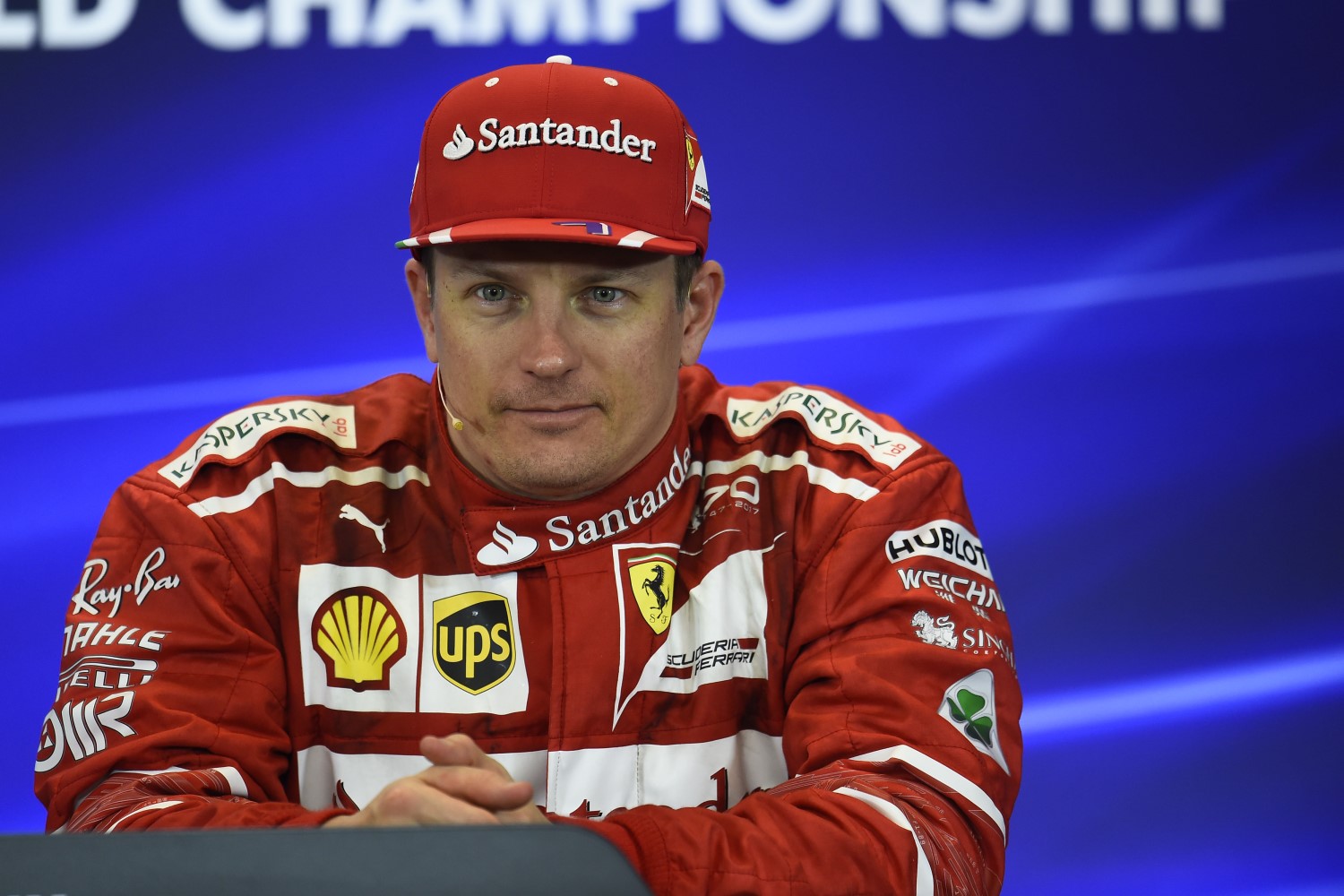 |
| Kimi Raikkonen willing to give Liberty a fair shake |
Kimi Raikkonen has backed the initial changes made by Formula 1's new owner, Liberty Media, but reckons it will take "a few years" to judge its impact on the sport.
Liberty, which arrived on the scene towards the end of 2016, completed its purchase of Formula 1 in January, and has spent the year understanding how the sport operates.
Chase Carey replaced Bernie Ecclestone as CEO, with ex-Formula 1 team boss Ross Brawn handed a key sporting role, and Sean Bratches taking control of the commercial side.
Several new initiatives were trialed, including expanded fan zones at selected races, the first 'F1 Live' demo in London and a star-studded pre-race show at the United States Grand Prix.
Raikkonen has praised Liberty for putting in "a lot of effort" with these early changes, but reckons the full effects will not be felt until the next major regulation change in 2021.
Liberty and the FIA recently outlined plans for the post-2020 power unit, with a 1.6-litre V6 hybrid set to be retained, but as part of a simpler, cheaper and louder package.
Meanwhile, discussions continue over a potential budget cap, and redistribution of prize money, in an attempt to create "a healthy Formula 1 from top to bottom".
"They're trying to make it even bigger and more maybe easy to see… and people to get more involved," said Raikkonen, regarding Liberty's takeover, in a Shell Live Q&A.
"But I think only in a few years, when the next rules come, you will see the impact that they have for the sport, [as] they just took it over, so it's a bit like a 'halfway' now.
"I think they have put a lot of effort to make it… listening to everybody and making the right rules and calls. I think that's why in a few years, once the new rules come, and the cars, we'll see if it's been a good decision.
"But from what I've seen and heard they at least put a lot of effort to make it good."
Carey recently described Liberty's first year in charge of Formula 1 as a "good start", though made clear that much more is on the horizon.
"Our main goal for this year was to give the sport some positive momentum and excitement about the future after a number of years of criticism and concern," said Carey.
"It's still early days, but we're off to a good start.
"With our new organization largely in place, we've now begun to pursue the initiatives to enable us to build Formula 1 to its true potential.
"Among our key priorities are first improve the race, we have groups working with the teams, and the FIA, on costs, engines, aerodynamics, and tracks and rules.
"Our goal is to make the races more competitive, the action even better, the 'wow factor' even bigger, and the business model better for us and the teams.
"There's broad agreement on the directions of these goals, though there will obviously be different opinions about the details.
"We do not plan to negotiate in public, but to work with the teams to find the compromises that ultimately deliver a better sport to fans and benefits to all of us."
Todt 'very surprised' by negativity over halo
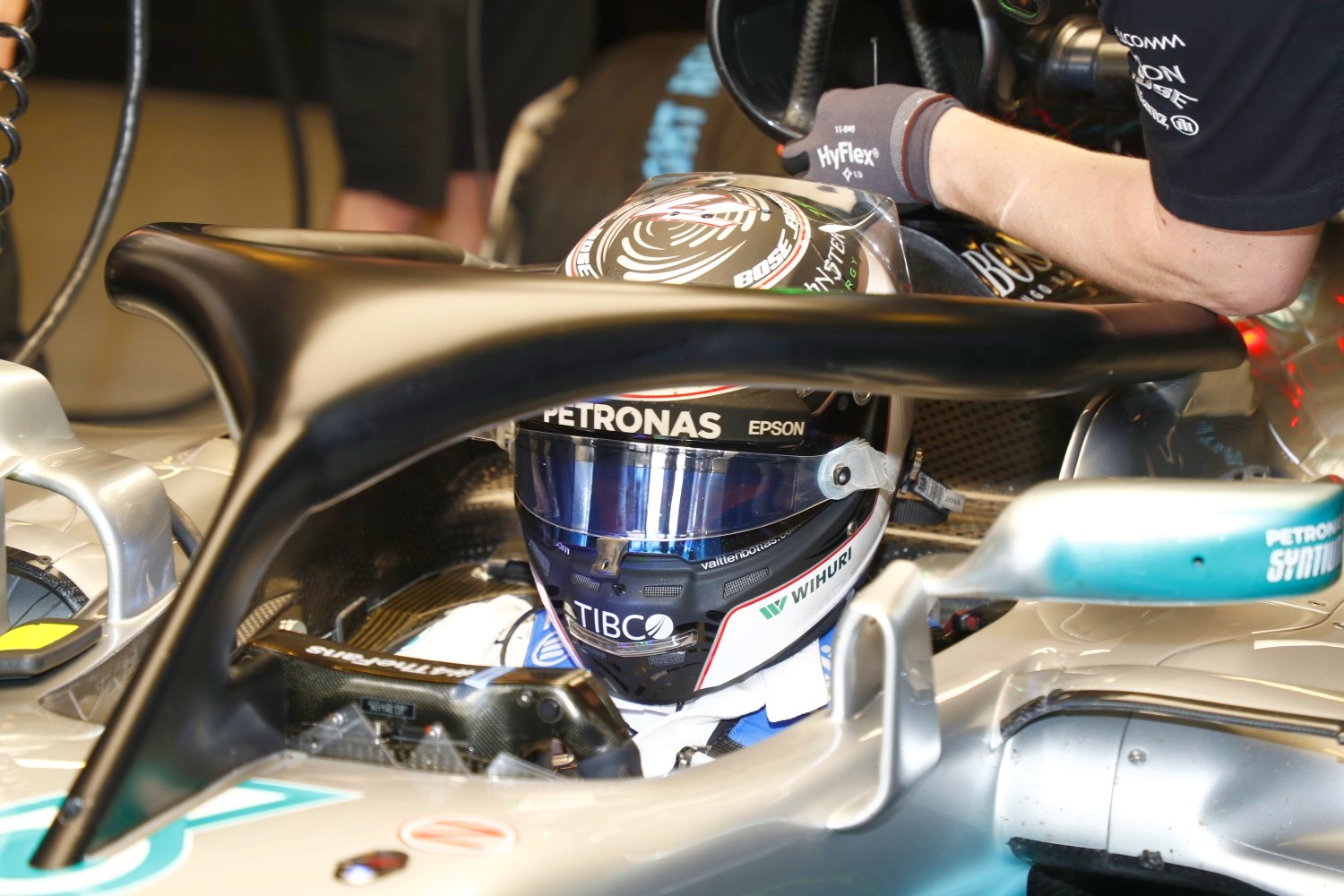 |
| Halo on Bottas car in Abu Dhabi |
FIA President Jean Todt says he has been "very surprised" by the negativity which has greeted the 'halo' since its introduction for 2018 was announced.
Formula 1's governing body has pushed for extra head protection in recent years, following several incidents and near-misses, and tested the halo extensively in 2016, only for its introduction to be delayed.
Other options were explored before it was outlined in July that the halo had been deemed the most suitable device, and would be mandatory on cars next year.
Several current drivers and key figures criticized the decision, given the aesthetics of the halo, while there was also a backlash from fans.
Todt, though, highlighted the "huge benefit" that the halo will have on safety and has vowed to keep pushing for improvements in this area.
"I'm very surprised… for me the halo is something which is a small change, but which can be a huge benefit on safety," commented Todt.
"I must say I'm fascinated to see how much I have heard about the introduction of the halo in Formula 1, which is a kind of normal [continuity] in trying to progress in safety in single seater categories.
"I can agree with the fact that Formula 1 being the pinnacle of motorsport, you [the media] are much more vocal when we speak about Formula 1.
"But it has been introduced in other single seater categories, with no real comments.
"For me, the essential thing is that it will make racing safer for the driver.
"Now it's an engineers' issue, and so far it's the best which they have found – there were two different studies, but the halo has been the one which seems to give the best result.
"Unfortunately, it is not bullet-proof.
"Motorsport is less dangerous than it was, but it is still dangerous. Whatever we will be able to do, to make the cars safer, to put the drivers in a safer situation, we will do it."
Alongside the halo research, on and off track tests were carried out with a 'shield' concept, while Red Bull also ran its own 'aeroscreen' device.
Kubica: Rosberg arrival a 'powerful upgrade'
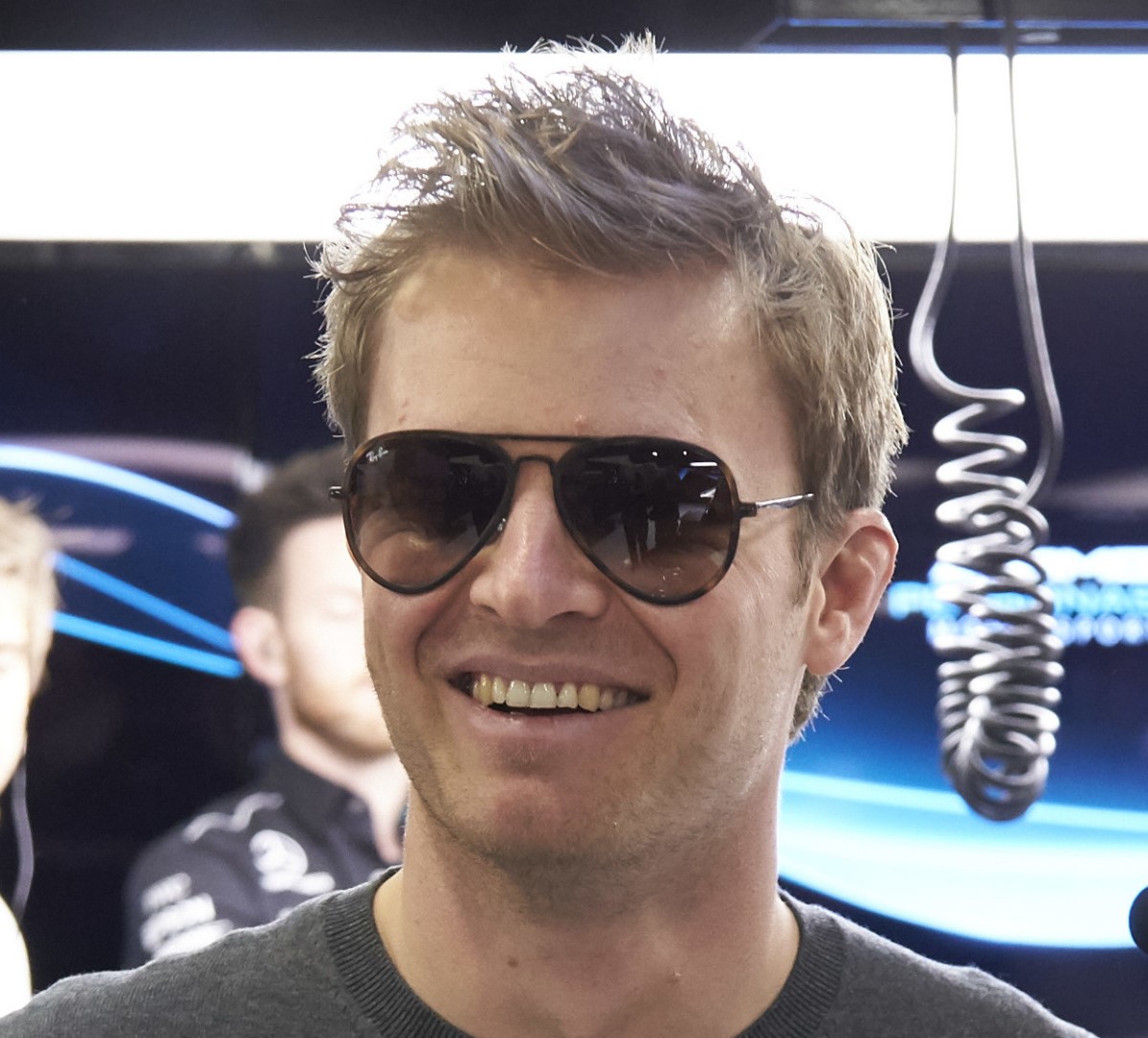 |
| Nico Rosberg |
Robert Kubica has described Nico Rosberg as a "powerful upgrade" to his management stable as he continues his push for a full Formula 1 return.
Rosberg claimed the 2016 title and shocked the motorsport community by announcing his retirement, as he vowed to explore new avenues in life.
Rosberg raced alongside Kubica in karting and junior categories, before both graduated to Formula 1 in 2006 with Williams and BMW-Sauber respectively.
Kubica, though, suffered severe arm injuries in a rally crash in 2011, cutting short his Formula 1 career, before he began to explore the possibility of a comeback earlier this year.
Kubica tested for Renault and Williams on several occasions, most recently appearing at Abu Dhabi tire test, and has been supported by Rosberg since September.
Rosberg joined Kubica's long-time manager, Alessandro Alunni Bravi, and the Pole was keen to note the positive impact on his comeback bid.
"It's very nice to have Nico joining us," commented Kubica.
"Alessandro Alunni Bravi is following me from my Renault days, from the beginning, so it's also a very powerful upgrade, I would say!
"It's a bit strange, because I know Nico since nearly 20 years, we have been always racing against each other… we met in karting, then our roads to get to Formula 1 were a bit different, but in the end we both got there.
"I'm really happy for him he won [the title] last year, he deserved it for where he put it.
"We speak often the same language, although I think we are quite different characters, so it's good, because I think we complete each other.
"He gives me some advice, so it's really nice."
Williams is still weighing up its options to replace Felipe Massa, having fielded Kubica and Renault reserve Sergey Sirotkin at the Yas Marina Circuit last week.
Ferrari signs Brazilian karter to program
Ferrari has added teenage Brazilian karter Gianluca Petecof to its young driver program.
Petecof, 15, has spent the past two seasons in the CIK-FIA European Championship, tackling the OK Junior class in 2016 (placing 44th overall), before stepping up to the OK class for 2017 (21st overall).
His karting highlights to date include winning the Copa Brasil in 2013 and Florida Winter Tour in 2014.
Petecof joins Giuliano Alesi, Marcus Armstrong, Enzo Fittipaldi, Antonio Fuoco, Callum Ilott, Charles Leclerc, Robert Shwartzman and Guan Yu Zhou in the Ferrari Driver Academy.
